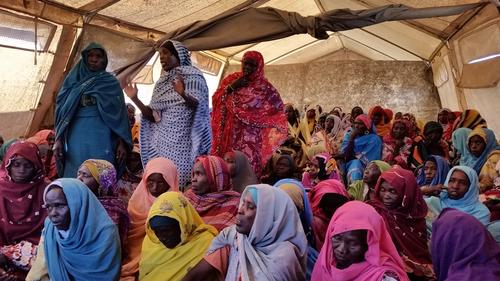General
How refugees in Africa can boost an economy via its labor market and tax quota
Millions of people have been displaced globally due to conflict, violence, and persecution, making them refugees on foreign soil, including within Africa.
Business Insider Africa
published: Apr 22, 2025


Millions of people have been displaced globally due to conflict, violence, and persecution, making them refugees on foreign soil, including within Africa.
- Millions of people globally displaced due to conflict, violence, and persecution.
- Higher precipitation levels and floods are key factors driving refugee flows within Africa
- Refugees in emerging market economies face worse labor market outcomes than native populations
A large number of refugee flows from the conflict-affected economy can arise from high-intensity conflicts, and these flows can last longer than those brought on by natural disasters, as highlighted by a report by the International Monetary Fund.
“In Africa, natural disasters in migrants’ and refugees’ countries of origin are positively associated with migration and refugee flows, often to another African country,” the report states.
“Higher precipitation levels and floods have been identified as key push factors, with refugee flows from landlocked African economies also sensitive to temperature levels and anomalies.
Such findings are corroborated more generally across emerging markets and developing economies, by contributing to cross-border displacement, natural disasters drive much of the climatic shocks’ impact on economic outcomes,” it adds.
DON'T MISS THIS: Top 10 African countries with the highest number of asylum seekers in 2024
The report further goes on to highlight that substantial refugee flows from the conflict-affected economy can result from high-intensity conflicts, and these flows can last longer than those brought on by natural catastrophes.
The concentration of refugees among emerging market and developing destination economies, including several with little fiscal capacity, highlights the issues presented by inadequate integration.
The IMF's suggestion on refugee integeration
Evidence reveals that labor market results of refugees are much worse than those of native populations, and are initially likely to create net fiscal costs.

“Recent research on the Middle East, North Africa, and Central Asia also finds that host countries often experience higher fiscal deficits following refugee inflows; the increases are associated with the provision of health, education, and subsistence services,” the IMF report reveals.
“Better integration of refugees can therefore help alleviate such pressures, because better labor market outcomes can not only help resolve labor shortages but also boost tax revenues and, more generally, aggregate demand and GDP growth.”
The IMF report suggests that refugee integration is not just a humanitarian obligation, but also an effective economic approach.
Allowing refugees to engage actively in the job market can help host nations offset early fiscal strains and improve long-term economic success.
Productive employment of refugees can assist in filling labor gaps, particularly in aging or underemployed economies, while also broadening the tax base and raising domestic spending.
As refugee situations grow increasingly prolonged owing to global war and climate change, the research serves as a timely reminder that inclusive policies may transform short-term budgetary issues into long-term economic benefits.
Read More